

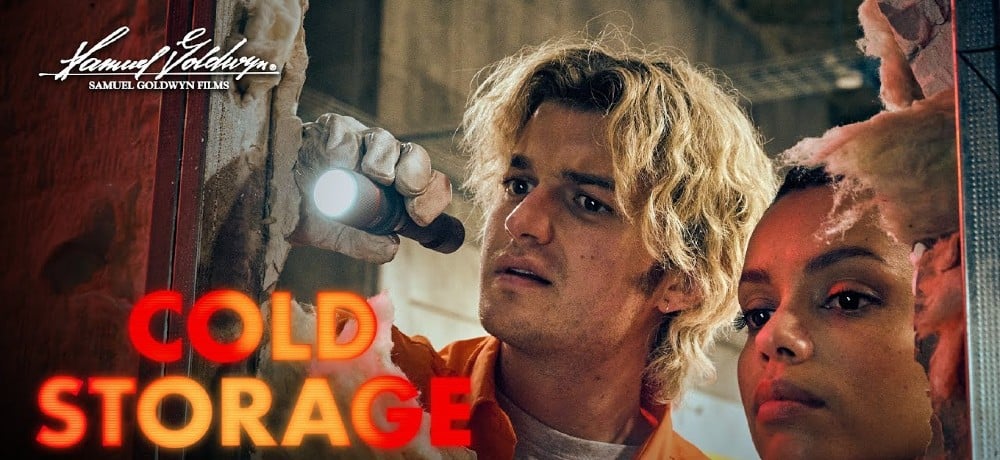
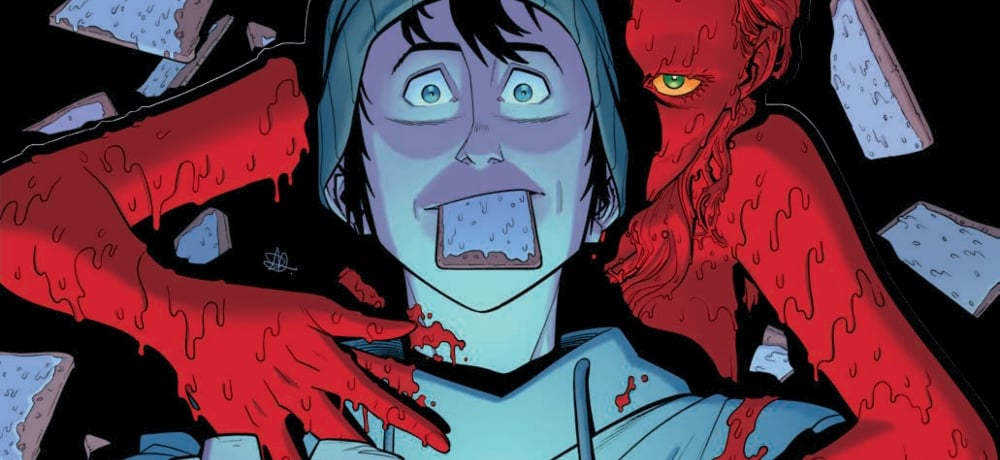
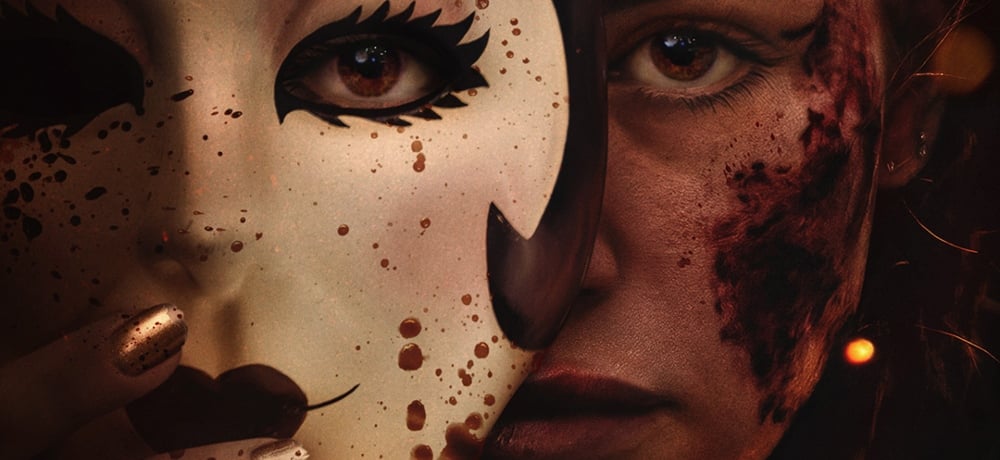
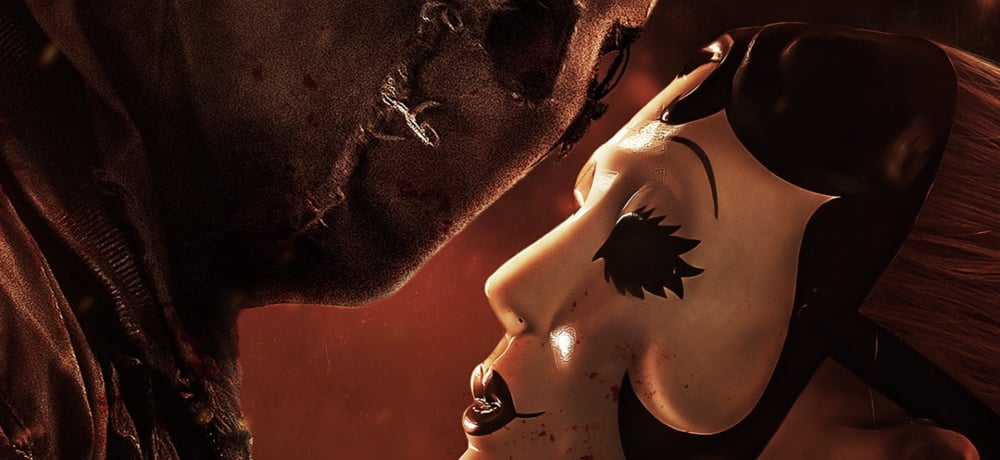
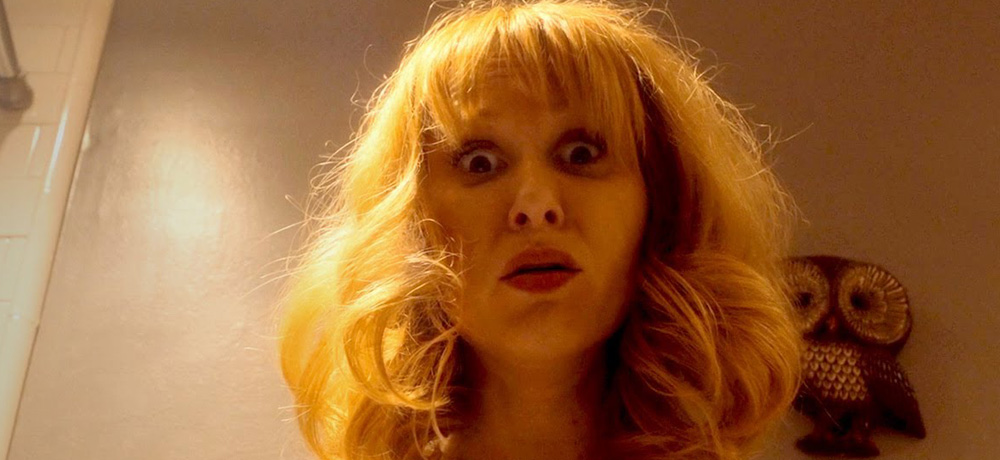
In today's Horror Highlights: Watch the short film bnb, read a Q&A with the composer of Anything for Jackson, and learn about next year's schedule at The Miskatonic Institute of Horror Studies!
Watch the Horror Short Film bnb: "Meet Harry and Sally, a couple of aging millenials who found love on tinder, get around in an uber, and can always find a "home away from home" using the rental site bnb. But tonight’s stay, their host is nowhere to be found. Facing the new anxieties of the internet "sharing economy", being strangers in a strange house leads Sally to fear for their online reputation... and Harry to fear for their lives."
Writer/Director: Hunter Stiebel
Cast:
Harry: Hunter Stiebel
Sally: Tate Hanyok
Carol: Tacey Adams
Cinematography: Brian C. Weed
Editing: Gavin Michael Booth
Score: Mike Zarin of Sencit Music
-----------
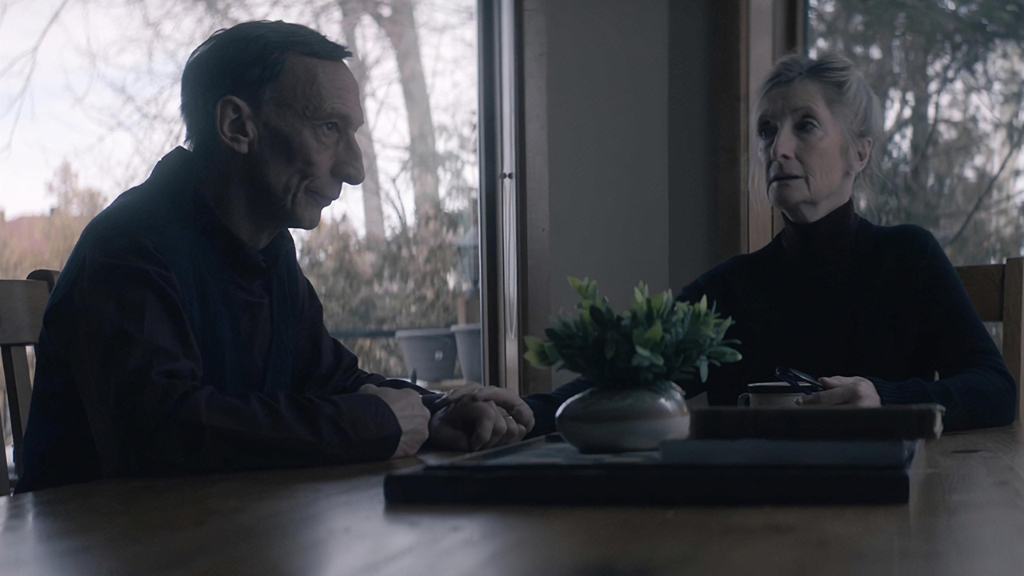
Composer John McCarthy Discusses His Latest Score to Shudder’s Anything for Jackson: "Shudder’s Anything for Jackson premiered last week and is giving moviegoers an alternative to the cookie cutter holiday films that have become rampant this time of year. Shudder is labeling the film an “wintery anti-Nativity tale”. Anything for Jackson follows a couple willing to summon Satan himself, to save their grandson. Of course, nothing ever works out correctly when dealing with the dead and they end up inviting more ghosts into their house. The film was scored by composer John McCarthy. Some of John’s other credits include CBS’s Battle Creek and NBC’s My Own Worst Enemy. We spoke with John extensively about his work on Anything for Jackson below.
-How would you describe your score for Anything for Jackson?
Unconventional. Through an iterative intensive process, I aimed to create a score that is absent of any recurring ‘theme’ or ‘leitmotif’. It’s honestly unlike anything I’ve done in the decades I've been scoring films. The direction from Justin Dyck (director) and Keith Cooper (writer) was to have the score build and build and build. I used my classical approach to scoring but with a modernist twist, as I utilized lots of aleatory devices to execute their idea of constant evolution.
-Anything for Jackson opens with old-fashioned music being played on a record machine and continues throughout the movie at times. Did you have any input on this music?
The song ‘Daisy Bell’ was chosen and sung by the writer Keith Cooper. However, I rendered Keith’s voice through a battery of effects to ensure it fit aesthetically to the film. It was Justin’s idea to have the music return a few times throughout the film, as it starkly juxtaposed the underlying insanity of the rest of the score.
-Instrumentally, did you know right away the approach you were going to take? If not, how did you decide?
It was a collaborative process from the very beginning, as both the director and the writers were very hands on and knew what they were looking for in a technical sense. My job was to compose various ideas, see what they responded to, and from there ultimately flush out what the score was going to be. In the case of Anything For Jackson it was clear a modern classical approach was going to be the way to go, so essentially the score is composed of orchestrations that are procedurally augmented by modern sounds for moments of accentuation or excitement.
-In Anything for Jackson, sometimes your score is more prominently featured and sometimes it’s just in the background. How did you decide what level it was going to be at? When do you think the theory “less is more” becomes relevant?
From the outset the direction was to stay away from a wall to wall approach, as it allows the score to play a more intracule part in the movie. It only comes in when the subtext of the scene needs to be elevated by the score.
For instance, the score in the film starts off sparse, and really doesn’t kick in until the first séance at about the 25-minute mark when the audience realizes that they are witnessing a supernatural world. From then on out the score still plays a supportive roll with the occasional traditional breaks to support character development. The last act was the most exciting moment for the score in my opinion, as when all hell breaks loose, the sounds weave up and down to actively support the insanity.
-During the ritual in the bedroom, sounds from a children’s toy can be heard. Was that done by you or the sound designer?
Yes, I created those actually. The sound of the toy was created by using old toy samples and keyboards as the basis, and then putting them through crazy plugins to accentuate the ethereal nature of those devices.
-Expanding on the last question, how closely did you work with the sound designer?
Due to COVID, we did not spot the movie in the traditional way. Urban Post Production did a fantastic job with the sound design and the mix, and we worked as closely as we could in this new normal way of the creative collaborative process.
-Nerdist is calling Anything for Jackson “this year’s Hereditary”. What do you think about this comparison?
Considering Hereditary had 20 times the budget, hopefully the independent horror community will get the recognition it deserves!
-Are there any horror film scores that have particularly stuck out to you?
All the classic horror scores I grew up with have left an intimate impact on the way I approach sound. For instance, Bernard Herman’s score for Psycho completely changed the context of the violin in film. The Shining was so brilliant in its use of found music, the pieces by Legeti and Penderecki were used brilliantly and almost seem riskier sonically than many scores today. Honestly my favorite of all time has to be Mike Oldfield’s work on The Exorcist, as it still terrifies me to this day even decades after.
-What’s next for you?
Well I just did some remote recording (sax and flute) for the band Morcheeba’s new album. I have a few things in the works film wise... but I hope to work more in the horror world after working on this project!
----------
THE MISKATONIC INSTITUTE OF HORROR STUDIES ANNOUNCES SPRING 2021 SEMESTER OF ONLINE CLASSES: "The Miskatonic Institute of Horror Studies is proud to present the Spring 2021 Semester of Lectures. As we enter the second (and hopefully final) year of the pandemic crisis, lectures for all our branches will be online for this semester. While we miss the live events, we are happy to reach out to a wider audience. We’re thrilled at the number of attendees from around the world who have had the opportunity to experience our classes this past autumn, and despite the reason, we’re delighted to expand the Miskatonic family, both in audience and instructors.
The world’s longest-running educational organization devoted to the study of horror history, theory and production, is pleased to announce 15 new classes, led by critics, academics, and writers, with ideas that will delight, inspire, and expand our knowledge and understanding of horror in art and culture.
Miskatonic London opens our semester with a class on the newly rediscovered Shirley Jackson and her importance in horror texts. The branch will also host classes on representations of Haiti in American horror cinema, the great Hammer horror films that never were, the mashing of monsters in screen history, and the horror of British author Shaun Hutson.
Miskatonic New York begins with the amazing story of horror zines, then dives into an exploration of the franchise in Spanish horror cinema. We’ll be in urban territory exploring terror and the high-rise edifice, then the ‘rural’ in Antarctica, exploring the unknowable in abject horror. The branch will conclude with a look at the classic thriller The Vanishing, and existential dread in horror.
Miskatonic Los Angeles first takes us to early 20th century Japan and the writing of Edogawa Rampo, before whisking us back home for a masterclass with legendary effects artist Rick Baker. We’ll then head to Europe, with a look at Italian horror comics, then in Germany for the legend of Walpurgisnacht. We’ll finish the semester with an investigation into trans and gender-non-conforming bodies in horror cinema.
The Institute will once again be offering a Global Pass for US$90, which offers a discount to attend all 15 Miskatonic classes in the Spring 2021 semester, as well as the City Branch Pass (£30 for London, US$40 each for New York and Los Angeles), and individual tickets to each class (£8 for London, US$10 each for New York and Los Angeles). Please note that all classes will take place in the time zone of their Branch affiliation; be sure you can attend before booking (and watch out for daylight saving time changes!), as all sales are final.
Full details of classes and links to passes and tickets are available on our website, www.miskatonicinstitute.com."